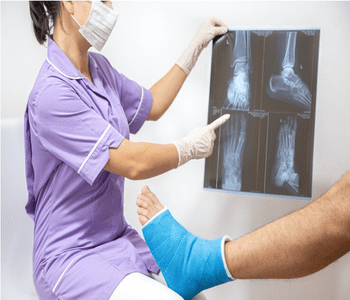Acupuncture, a cornerstone of traditional Chinese medicine, has been practiced for thousands of years. Despite its long history, scientific understanding of its mechanisms has evolved significantly in recent decades. This blog explores how acupuncture affects the nervous system, promotes healing, and reviews current research findings to provide a comprehensive overview of this intriguing therapy.
How Acupuncture Works: A Brief Overview
Acupuncture involves the insertion of thin needles into specific points on the body, known as acupoints. These points are believed to be connected by pathways called meridians, which, according to traditional Chinese medicine (TCM), facilitate the flow of “qi” (pronounced “chee”), or vital energy. Disruptions in this flow are thought to cause illness, and acupuncture aims to restore balance and health by stimulating these acupoints.
Mechanisms of Acupuncture: A Modern Perspective
1. Nervous System Activation
Recent research suggests that acupuncture’s effects can be explained through its impact on the nervous system. The insertion of needles at specific points appears to stimulate sensory neurons, which activate the central nervous system. This activation can lead to several physiological responses:
- Release of Neurotransmitters: Acupuncture may increase the release of neurotransmitters such as endorphins, serotonin, and dopamine. Endorphins, in particular, are known for their pain-relieving properties and are often referred to as the body’s natural painkillers.
- Modulation of Pain Pathways: Studies have shown that acupuncture can influence pain pathways in the brain and spinal cord. It may enhance the body’s ability to manage pain by altering the way pain signals are processed and perceived.
- Autonomic Nervous System Regulation: Acupuncture can also affect the autonomic nervous system, which controls involuntary bodily functions like heart rate and digestion. By modulating the balance between the sympathetic (fight or flight) and parasympathetic (rest and digest) systems, acupuncture can promote relaxation and reduce stress.
2. Immune System Support
Acupuncture may enhance the immune system’s response by promoting the production of immune cells and modulating inflammatory responses. Research indicates that acupuncture can:
- Increase Immune Cell Activity: Some studies have found that acupuncture can boost the activity of white blood cells, which play a crucial role in fighting infections and diseases.
- Reduce Inflammation: Acupuncture may help reduce inflammation by influencing the levels of pro-inflammatory cytokines and promoting the release of anti-inflammatory substances.
Promoting Healing Through Acupuncture
Acupuncture’s ability to promote healing is a significant area of interest. Several mechanisms contribute to this effect:
1. Enhancement of Blood Flow
Acupuncture can improve blood circulation in the areas where needles are inserted. Enhanced blood flow helps deliver oxygen and nutrients to tissues, facilitating repair and recovery. Improved circulation can also aid in the removal of metabolic waste products from the affected area.
2. Promotion of Tissue Regeneration
Acupuncture has been shown to stimulate the production of collagen and other growth factors, which are essential for tissue repair and regeneration. This can be particularly beneficial in treating injuries, promoting faster recovery, and improving overall tissue health.
3. Balance and Harmony Restoration
In TCM, health is seen as a balance between different elements within the body. By stimulating specific acupoints, acupuncture aims to restore this balance and promote overall well-being. This holistic approach can support the body’s natural healing processes and improve health outcomes.
Current Research Findings on Acupuncture
1. Pain Management
A significant body of research supports acupuncture’s efficacy in managing various types of pain, including chronic pain conditions like osteoarthritis, lower back pain, and migraines. Systematic reviews and meta-analyses have generally found that acupuncture can be more effective than placebo and, in some cases, comparable to conventional pain treatments.
2. Stress and Anxiety
Acupuncture has also been studied for its effects on stress and anxiety. Research suggests that acupuncture may help reduce symptoms of anxiety and improve overall emotional well-being. This is thought to be related to its impact on neurotransmitter levels and autonomic nervous system regulation.
3. Digestive Disorders
Studies have explored acupuncture’s role in treating digestive disorders such as irritable bowel syndrome (IBS) and gastroesophageal reflux disease (GERD). Evidence indicates that acupuncture can provide symptomatic relief and improve quality of life for individuals with these conditions.
4. Postoperative Recovery
Acupuncture is increasingly being used to support postoperative recovery. Research shows that acupuncture may help reduce postoperative pain, nausea, and vomiting, as well as accelerate recovery times.
To Conclude
Acupuncture continues to intrigue both practitioners and researchers with its blend of ancient tradition and modern scientific inquiry. While traditional Chinese medicine offers a holistic framework for understanding acupuncture, contemporary research provides insights into how acupuncture affects the nervous system, supports immune function, and promotes healing.
As our understanding of acupuncture deepens, it is becoming clearer that this ancient practice has real, measurable effects on health. However, further research is needed to fully elucidate all its mechanisms and optimize its use in various therapeutic contexts. For those interested in exploring acupuncture, it’s essential to consult with Fairview Physiotherapy and consider it as a complementary approach to conventional medical treatments.
Incorporating acupuncture into a holistic health strategy could potentially offer significant benefits, particularly when aligned with modern scientific insights and individualized care.



